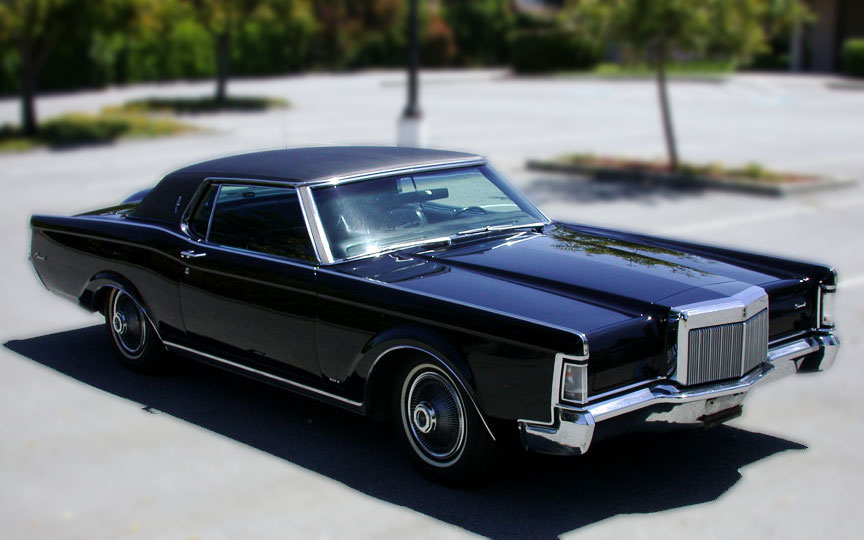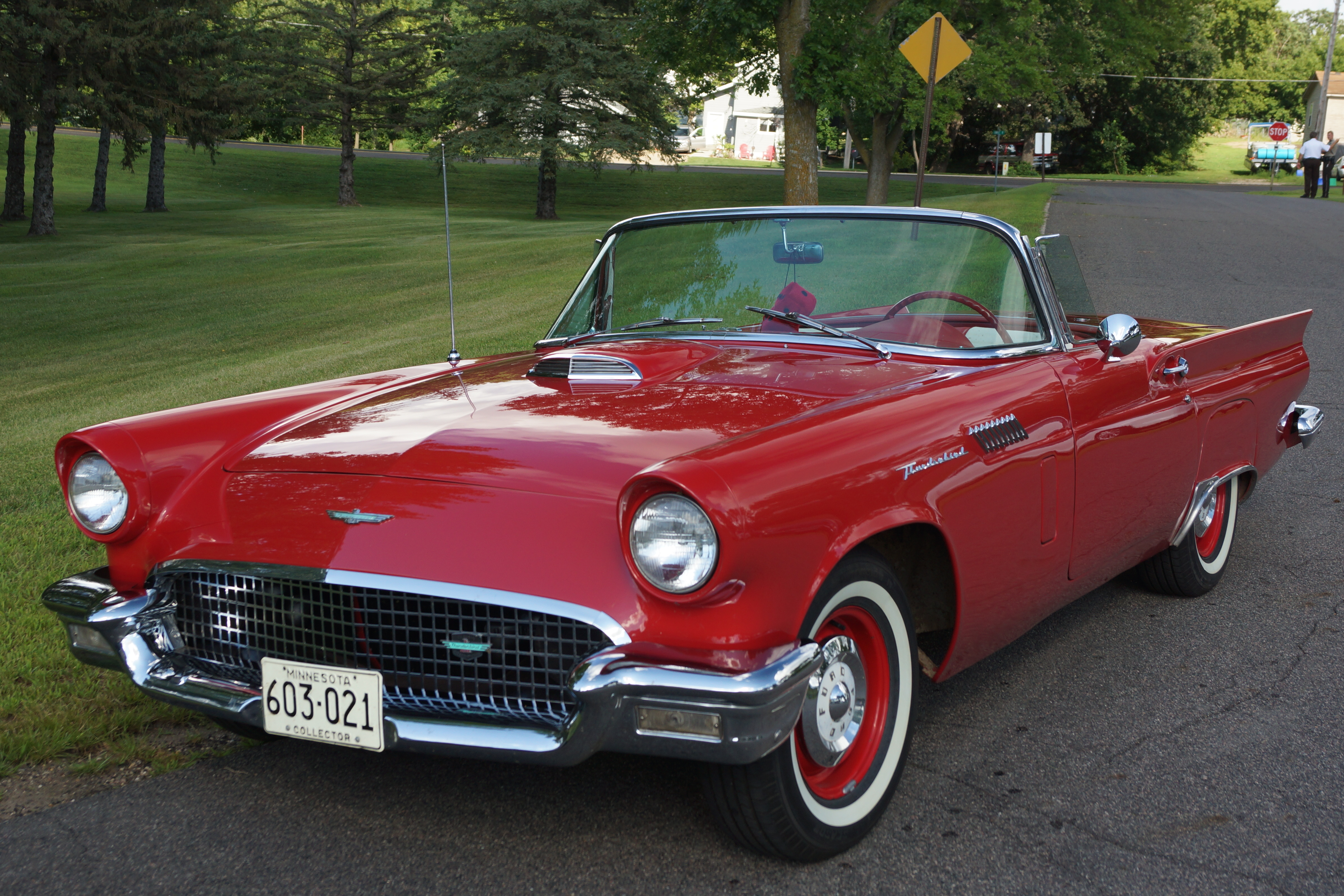18 Cherished Cars of Boomers Left Forgotten by Disenchanted Millennials

There’s something about the cars from the ‘60s and ‘70s that many boomers just can’t get enough of. Maybe it’s their distinctive style, or perhaps it’s their powerful engines, but either way, these were cars that symbolized true American freedom. Sadly, lots of millennials overlook these classics in favor of newer rides instead. Here are 18 cars that millennials ignore that boomers absolutely love.

1. **Plymouth Road Runner**: The Plymouth Road Runner hit the streets in 1968 and was an immediate hit, known for being a budget-friendly muscle car. Boomers loved its sheer power and still remember its iconic branding, featuring the Looney Toons character of the same name. Unfortunately, millennials overlook this car as they prioritize fuel efficiency over raw power.

2. **AMC Pacer**: With its wide and rounded design, the AMC Pacer was marketed as “the first wide small car.” Boomers appreciated its spacious interior and unique look, but millennials often find it less appealing, failing to recognize how groundbreaking it was during its time.

3. **Ford Galaxie**: A symbol of luxury and performance in the ‘60s, the Ford Galaxie boasted a sleek appearance and a powerful V8 engine. While this classic was beloved by boomers, millennials often ignore it in favor of more advanced vehicles, unaware of its historical significance.

4. **Oldsmobile Toronado**: Debuting in 1966, the Oldsmobile Toronado was America’s first front-wheel-drive car since the 1930s. Boomers loved the luxury it represented and its advanced engineering, while millennials see it as a car that requires more maintenance than they’re willing to deal with.

5. **Mercury Cougar**: Initially intended to be an upscale version of the Ford Mustang, the Mercury Cougar evolved into a standalone vehicle with an elegant, sporty design. Despite its unique appeal, most millennials overlook this classic, preferring more eco-friendly modern sports cars.

6. **Chevrolet El Camino**: This vehicle combined the utility of a pickup with the style of a coupe, making it a popular choice for boomers who valued versatility. However, millennials tend to dismiss it as impractical compared to contemporary vehicles that promise better efficiency.

7. **Pontiac Firebird Trans Am**: Famous for its roles in films and television, the Firebird Trans Am was known for high performance and a roaring engine. Sadly, most millennials are oblivious to its charm, primarily due to its poor gas mileage and emissions, which do not align with their eco-conscious values.

8. **Cadillac Eldorado**: Once a symbol of success and American luxury, the Cadillac Eldorado was lauded by boomers for its grand size and opulence. However, millennials perceive it as an antique that fails to meet modern standards for efficiency and environmental friendliness.

9. **Buick Riviera**: The Buick Riviera was cherished for its powerful performance and stylish design during the 1960s, but millennials often see it as outdated—lacking the technology and features they prioritize in their vehicles today.

10. **Dodge Charger**: While the modern Dodge Charger exists today, it pales in comparison to the iconic versions from the ‘60s and ‘70s that exuded power and style. Millennials, however, often disregard the classic in favor of more efficient options that fit their lifestyle.

11. **AMC Gremlin**: Launched in 1970, the AMC Gremlin was an unusual vehicle that garnered attention for its quirky design. While it was fun and affordable, the Gremlin ultimately fell out of favor with millennials who tend to favor more conventional aesthetics. It’s a reminder of how unique designs can be polarizing, with some seeing charm while others see impracticality.

12. **Lincoln Continental Mark III**: The Lincoln Continental Mark III was a luxury coupe that became the epitome of wealth among boomers in the late ’60s. Its glamour and sophistication attracted many, but millennials often overlook it, associating it more with vintage elegance than practicality. This car tells of an era where luxury had different connotations than it does today.

13. **Studebaker Avanti**: The Studebaker Avanti stood out for its head-turning performance and cutting-edge design in the ’60s. While it was a pioneer of style and power, today’s millennials often find its vintage features less appealing compared to modern technology. The Avanti symbolizes the changing times in automotive design and preference.

14. **Ford Thunderbird**: Known for its luxury and style, the Ford Thunderbird was a beloved classic that captivated many boomers. However, millennials often view it as less relevant due to its fuel inefficiency and lack of modern amenities. Its legacy as a collector’s item reminds us of the shifting values in car ownership.

15. **Chevrolet Corvair**: The Chevrolet Corvair broke new ground with its rear-engine design, making it a standout model in the ’60s. While boomers remember it fondly, millennials are wary due to historical safety concerns associated with the vehicle. The Corvair exemplifies how innovations can be both celebrated and criticized through the lens of time.

16. **Chrysler Imperial**: Once a luxurious status symbol, the Chrysler Imperial now feels oversized and impractical to millennials. Its large frame and heavy fuel consumption are seen as drawbacks in today’s eco-conscious climate. This car reflects the evolution of values regarding size and utility in automotive preferences.

17. **Pontiac GTO**: The Pontiac GTO kicked off the muscle car craze, and many boomers still covet its iconic status. Despite its classic appeal, millennials often view it through the lens of fuel efficiency, leading to a disconnect. The GTO remains a pivotal piece of automotive history that speaks to the muscle car era.

18. **Mercury Montego**: The Mercury Montego was a stylish and dependable choice for families in the ’60s. However, millennials are more inclined to prioritize technological advancements in their vehicles today, meaning this classic often gets overlooked. The Montego serves as a reminder of how family needs have shifted over the decades.

As we reflect on these cherished cars of the past, it’s important to recognize the stories they tell about American culture and the nostalgic connections boomers have with them. While millennials might not share the same love for these vehicles, each car represents a unique chapter in automotive history. From the raw power of muscle cars to the quirky designs that challenged convention, these forgotten legends still hold a place in the hearts of those who experienced their heyday. Understanding the cultural significance of these automotive treasures is essential as we navigate the evolution of car enthusiasts across generations. The vehicles that ignite passion and nostalgia in one generation can easily become relics for the next, providing a fascinating glimpse into how societal values shape our connection to the automobile. It’s a thrilling journey through time that continues to influence the way we drive today.
Related posts:
18 Classic Cars Loved by Boomers but Snubbed by Millennials
Each generation’s favorite classic cars
Innovation Journal 2020
Discover more from Auto Travel World
Subscribe to get the latest posts sent to your email.












